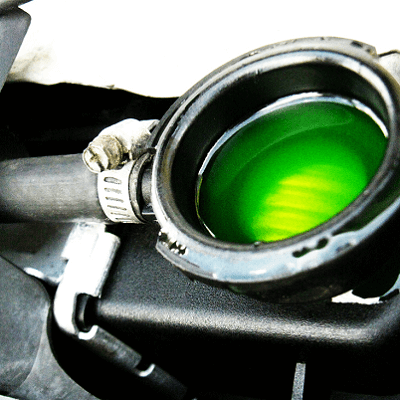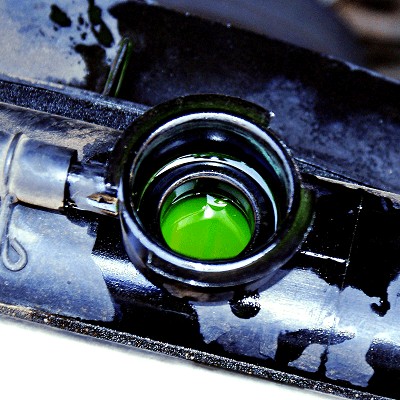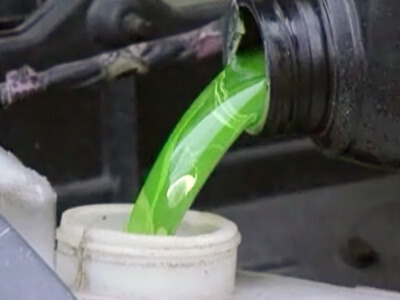Cooling System Health Is Critical to Engine Reliability
Evolving engine technologies have dramatically increased the demands placed on cooling systems. While today’s coolant formulations are more advanced than ever, studies show that up to 50% of premature engine failures are still linked to cooling system issues. Despite their critical role, cooling systems are often overlooked—yet even minor coolant-related problems can quickly escalate, affecting engines, transmissions, and hydraulic systems.
Routine coolant analysis is essential for identifying potential issues before they become costly failures. It ensures the correct coolant is in use, verifies that chemical balances are within specification, and helps detect mechanical problems that may compromise the system’s integrity.
Benefits of Coolant Analysis
Placeholder
- Verifies the proper coolant is being used
- Verifies coolant inhibitor levels are acceptable
- Verifies coolant is suitable for continued use
- Provides an overall assessment of the cooling system
- Identifies potential issues with the coolant or cooling system at an early stage (before costly failures occur)

Resources
Placeholder
Coolant (antifreeze) is often the most neglected fluid in most vehicles with more than more than 2/3 of cooling system repair jobs being performed on an emergency basis. With coolant system failures cited as one of the most common causes of roadside breakdowns, regular coolant analysis should be considered an important part of your maintenance program.
Download the quick reference recommended Coolant test overview.
Field Testing
Check Coolant Level (Daily)
- Keep coolant topped up at all times
- All cooling systems are prone to leakage
- Low coolant levels introduce air, which rapidly degrades coolant and promotes corrosion
Check Coolant Concentrations (During Maintenance or 2x / year)
- Water transfers heat better / Glycol prevents freezing
- 50:50 ratio is typical, 60:40 used for cold-weather operation
Check Inhibitor Levels (During Maintenance or 2x / year)
- Corrosion inhibitors are depleted over time
- Conventional coolants may require addition of SCA (supplemental coolant additive)
- Extended Life Coolants (ELC) inhibitors are more stable over longer periods

Laboratory Testing
Base Test
- Physical Appearance Color / Clarity / Odor / Precipitates
- pH
- Conductivity
- Nitrites by Titration
- Refractive Index Freeze Point / Boiling Point / % Glycol
Note: Tests are not sold on an individual basis
Optional Tests
- Carboxylates – can be added to base test depending on coolant formulation
- Reserve Alkalinity

Order Package Online!
- Credit card purchase only.
- Estimates for volume orders: Contact Customer Care or your Account Manager at 877-962-2400.
- If using a Purchase Order, complete the Sample Kit Order Form.
Water Soluble Test Packages
Basic:
- Viscosity 40C
- ISO Particle Count
- % Water (Refractive Index)
- pH
Placeholder
Advanced:
- Viscosity 40C
- ISO Particle Count
- % Water (Refractive Index)
- pH
- Reserve Alkalinity
- ICP Spectrometry (Outsourced)
Sampling Procedures
From Valve (Preferred Method)
- Set the engine at low idle
- Locate valve, remove dust cap, wipe clean
- Pushbutton Valve:
- Push to start flow of coolant
- KST-Series Valve:
- Use Sample Probe to start the flow of coolant from the valve
- Note: be sure to take proper safety precautions as coolant may be hot
Placeholder
Using Sample Pump
- Ensure engine has been shut down for 1-2 hours
- Carefully remove radiator cap (NOTE: Safety issue – do not remove cap if hot)
- Thread sample bottle and tubing onto sample pump
- Insert plastic tubing into radiator tank
- Pull plunger on sample pump to collect sample
Coolant Insights
Testing Coolant, Reducing Maintenance Costs
In mobile asset management, every vehicle’s performance and longevity directly impacts the bottom line. To control costs, reduce downtime, and…
Signs of Head Gasket Failure Related to Coolant
Head gasket failures are expensive and can quickly damage your engine if not dealt with as soon as possible. Head…
Nasty Business: Coolant Contamination of Oils
While glycol coolant contamination in diesel and natural gas engine oils is a common occurrence, that doesn’t mean it’s something…

Contact Us!
We're always happy to help with any questions you may have regarding technical support, training, sales, billing or other services.



